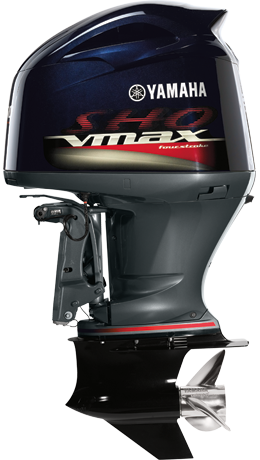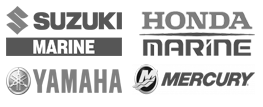Inboard vs Outboard: Which Best for You?
Like most choices in the boat buying process, weighing inboard vs. outboard can often be a bit challenging especially for first time buyers. Regardless of obvious biases, (Sea Born’s are sold exclusively with outboard motors. *Winks) personal preferences, and “expert opinions†aside, both power options have their own set of pros and cons. Before you decide, it’s important to identify who, when, where, and how your new boat is to be used. To help you make an informed choice, we’ve outlined a few of the most glaring reasons why you should choose an outboard over an inboard motor.
Six Advantages of Outboard Motors:
Ease of Maintenance & Accessibility
Rocking to the top and perhaps the probably biggest benefit to an outboard motor is ease of maintenance and accessibility. If you’ve ever seen the inside of an engine compartment for an inboard, you’ll quickly wonder if their mechanics could possibly moonlight as a horse jockeys or contortionists. Levity aside, inboard compartments are often very small, cramped spaces that can be a truly hellish work space when it comes time for maintenance. In contrast, an outboard can typically be remove from your boat in less than an hour and moved to virtually any repair shop.
More Floor Space
Given an outboard is on the back of the transom, there’s much more boat real estate to be had. From rear seating to storage below the deck, having the engine outside of the boat gives builders the opportunity to provide much in the form of creature features, and storage for PFDs and other gear. On an inboard, most of these spaces will be taken up by the engine, related parts, lines, and wires.
Shallower Draft
In most cases, an inbound engine will increase the overall draft of a vessel. The reason, the shaft and prop begin amid ship and angle towards the stern underwater. As a result, inboards often need more water to operate or they’ll run aground. As for an outboard, they can be trimmed or lifted out of the water.
Less Weight
Comparing apples to apples, inboard engines are much heavier than their outboard counter parts. Given the additional weight, inboards can suffer from performance problems and diminished fuel economy specifically in gas powered engines.
Improved Maneuverability
Regardless of what any sales person may say there’s a big difference between the handling and maneuverability of a true inboard versus an outboard. Meaning, an inboard requires a bit of practice as there’s a significant larger learning curve with respect to docking, backing up, and turning while in reverse. Over time owners will obviously become proficient but for inboard beginners (and those around them in the marina) be aware.
Reduced Sound
Just like an old late model V-8 without a muffler, inboard motors don’t have the advantage of reduced noise due to many government regulations. As this factor will vary greatly based on countless variables, one thing experienced boaters know, an outboard being in the stern and outside the boat is simply much quieter than an inboard. Location and design aside, inboard motors can often produce considerable vibration which only adds to a greater level of sound output.
Regardless of our opinions remember that when deciding which power platform and style you’ll want on your boat, it is extremely important to be honest about where and how your boat will used. If you have draft limitations and planning to put your boat on a trailer, we strongly suggest an outboard motor over an inboard.
Check out Yamaha’s comprehensive site showcasing their newest 4-Stroke engines.




